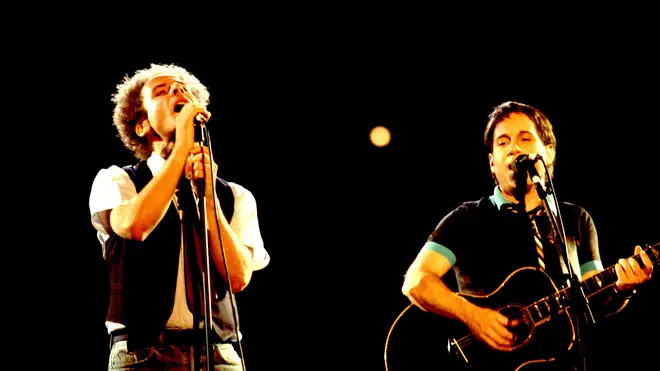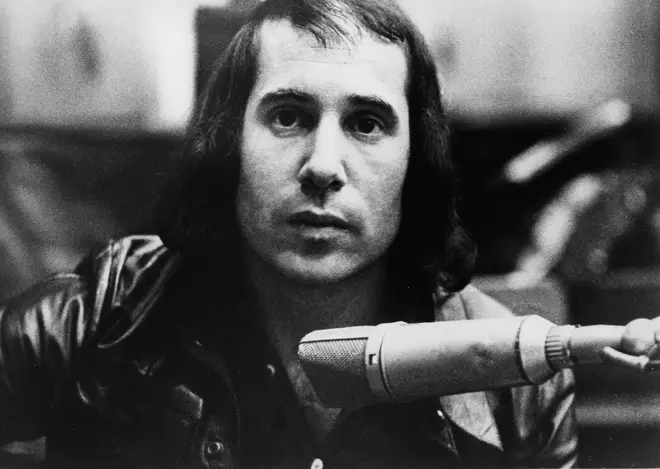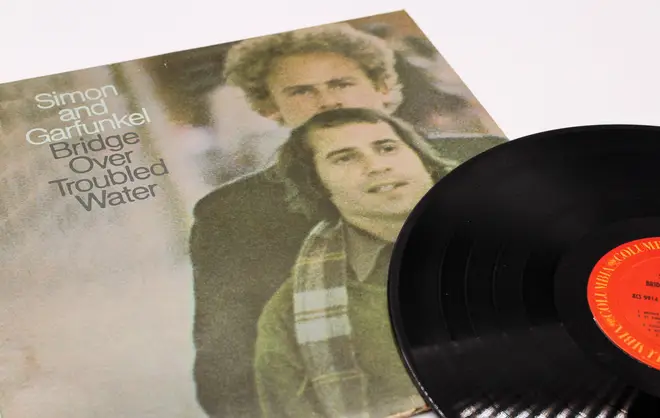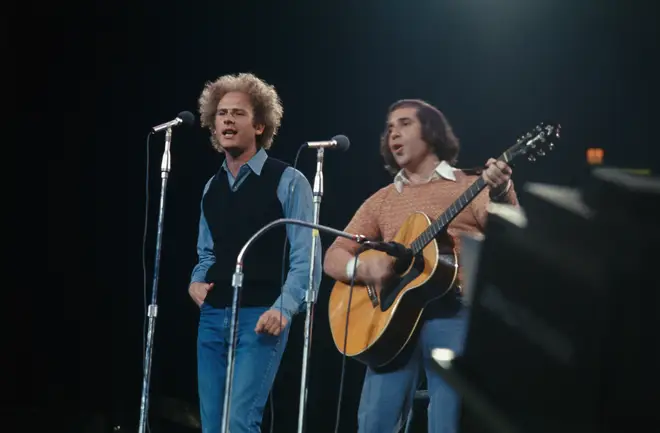On Air Now
Gold's 40 Minutes Non-Stop 1pm - 4pm
13 July 2023, 16:09

'Bridge Over Troubled Water' is undoubtedly one of the world's greatest songs.
Simon & Garfunkel's epic ballad was the perfect swansong for the pair, who parted ways following the album of the same name's release in 1970.
The duo - Paul Simon and Art Garfunkel - would reunite on several occasions since, and this was arguably their signature song that perfectly encapsulated Simon's songwriting ability and Garfunkel's flawless vocals.
But what is the song about and when was it written? Here are all the big facts about the song:

Paul Simon wrote the song 'Bridge over Troubled Water', which was featured on the band's fifth and last album, released in 1970, with the same name.
Simon scrawled it out so rapidly that he afterwards wondered, "Where did it come from? I don't appear to be in it.
He penned the song to soothe someone who was in distress.
It was described by Simon as "a little hymn." He added a third stanza because Garfunkel and producer Roy Halee believed it was more majestic. As a result, his "little hymn" received a lavish production, and upon hearing it, he concluded that it was too drawn-out, ponderous, and symphonic to be a smash single.
The song's commercial appeal was noticed by Clive Davis of Columbia Records, who insisted on spending a lot of money on promoting it and using it as the album title.

The phrase "I'll be your bridge over deep water if you trust in me" that Claude Jeter sang with his band, the Swan Silvertones, in the 1958 song 'Mary Don't You Weep', served as the basis for the song's title.
Anthony Heilbut, a gospel historian, claims that Simon eventually paid Jeter a cheque and personally admitted his obligation to him.
'O Sacred Head, Now Wounded' by Johann Sebastian Bach was cited by Simon as an additional source of influence for some of the melody's components.
The last line was written for Peggy Harper, Simon's then-wife, who had just begun to detect her first grey hairs ("Sail on, silvergirl").
However, contrary to what some have occasionally stated, the song does not allude to a drug user's hypodermic needle. Garfunkel came up with the verse, but Simon wasn't a fan.

Although Simon provides harmony in the song's last stanza, Art Garfunkel was instructed by Paul Simon to sing the song by himself in the "white choirboy way."
Garfunkel initially thought the song was not for him since he preferred Simon's falsetto in the demo version and recommended Simon sing in its place.
Simon added an extra verse and a "bigger" finale at the producer Roy Halee and Art Garfunkel's urging.
Simon started to feel resentful that he offered Garfunkel the solo vocals as their relationship started to deteriorate before their 1970 breakup.
He stated: "He believed I should have done it, and many times on a stage, when I'd be sitting off to the side, Larry Knechtel would be playing the piano and Artie would be singing 'Bridge', people would stomp and applaud when it was through, and I would think, 'That's my song, guy...'".

Simon & Garfunkel - Bridge over Troubled Water (from The Concert in Central Park)
The song was originally written by Paul Simon on guitar, but he subsequently changed the instrumentation to the piano to better portray the gospel influence and accommodate Art Garfunkel's vocals.
It was the last song to be recorded for the album, but it was also the first to be finished, after which two more weeks of post-production were added.
Simon originally composed the song in G major, but Jimmie Haskell, the song's arranger and composer, changed the key to E-flat major to better fit Garfunkel's voice.
To make it simpler for Garfunkel to travel to Mexico to film the movie Catch-22, it was recorded in California.
Larry Knechtel, a session pianist, was chosen by Simon because he desired a gospel piano sound. One high and one low bass guitar were performed by Joe Osborn. The third verse's string concluded the song.
To create the song's hall feel, Hal Blaine played the drums in an echo chamber while Gary Coleman, a session percussionist, performed the vibraphone.
The vocal approach of the song was influenced by Phil Spector's method on The Righteous Brothers' "Old Man River."
The song was ultimately finished after two months. "They are very similar songs, certainly in instrumentation," Simon subsequently told Rolling Stone, comparing it to the Beatles' "Let It Be."
It spent six weeks at the top of the Billboard Hot 100 list in the US, where it peaked in February 1970. It was the year's biggest single.
The song is one of the best-selling songs ever and has sold over six million copies worldwide. It was certified gold in the US for over one million copies sold.
It also peaked at number one in the UK in 1970.

ELVIS - Bridge Over Troubled Water (NEW mix! Great sound!)
Covers of the song have included versions by Aretha Franklin, Elvis Presley, Peggy Lee, The Jackson 5, Johnny Cash and The Supremes.
Linda Clifford also scored a hit with a disco version in the 1970s.
Under the name Artists for Grenfell, singers including Stormzy, Robbie Williams, James Blunt, Rita Ora and Emeli Sandé recorded a cover which went to number one in the UK in 2017, to raise money for victims of the Grenfell Tower fire.
There was also 'A Bridge Over You', a charity single recorded by the Lewisham and Greenwich NHS Choir, was a mashup of 'Bridge over Troubled Water' and Coldplay's 'Fix You'. It was the UK Christmas number one in 2015.